
Big-O Analysis
Problem 1
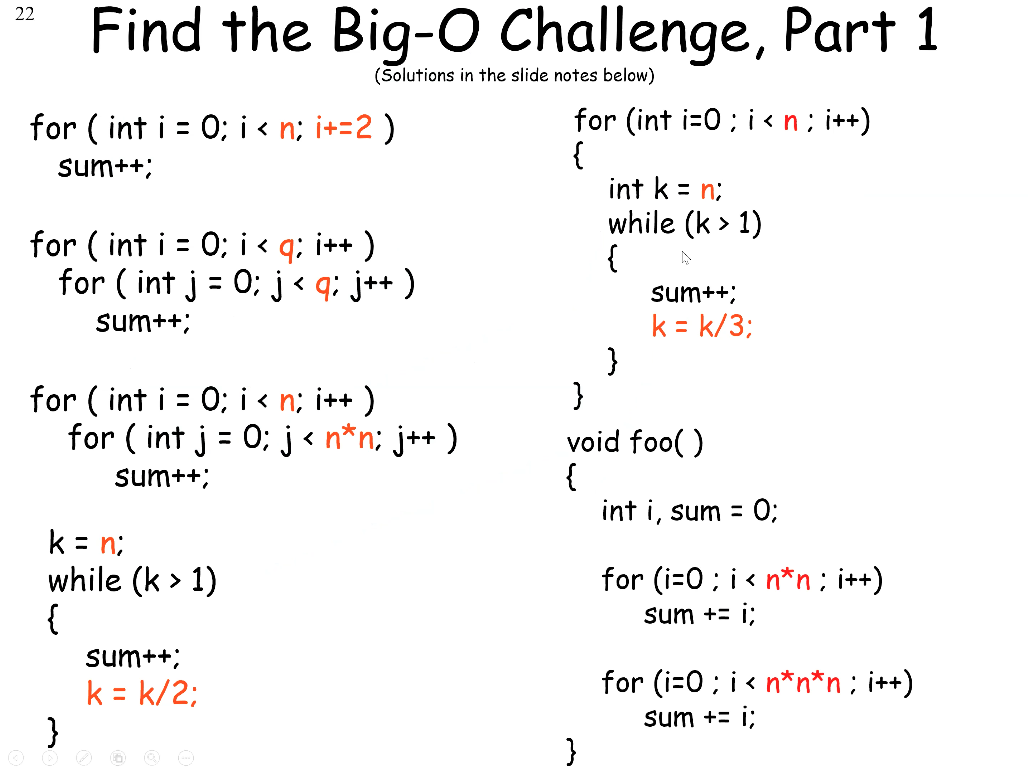
Problems
1 5
2 6
3
4
Answers
1. O(n)
2. O(n^2)
3. O(n^3)
4. O(log_2(n))
// k goes from n to n/2 to n/4...
// It takes log_2(n) steps to finish.
5. O(n*log_3(n))
6. O(n^3)Problem 2
void mystery(int n)
{
for (int q=0; q<n; q++)
{
for (int x=0; x<q; x++)
{
cout << "Waahoo!!";
}
}
}cout statement will run a total of
0 + 1 + ... + n-1 times, which is n(n-1)/2
Big-O: O(n^2)Problem 3
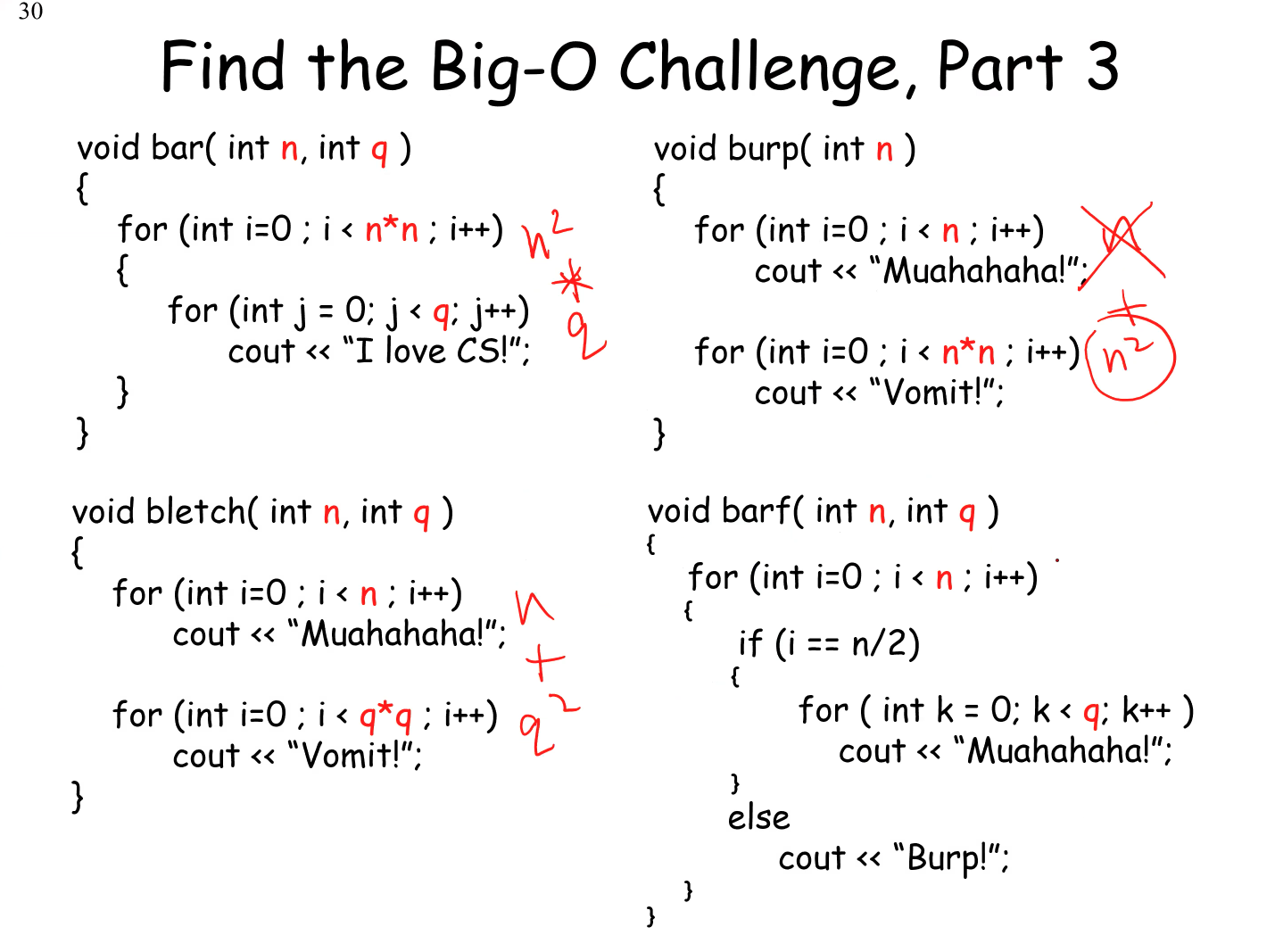
Problems
1 3
2 4
Answers
1. O(n^2*q)
2. O(n+q^2)
3. O(n^2)
4. O(n+q)STL and Big-O
Algorithms that STL classes have Big-Os too.
find(): O(log_2(n))


Answer: O(D*log_2(n))
Example
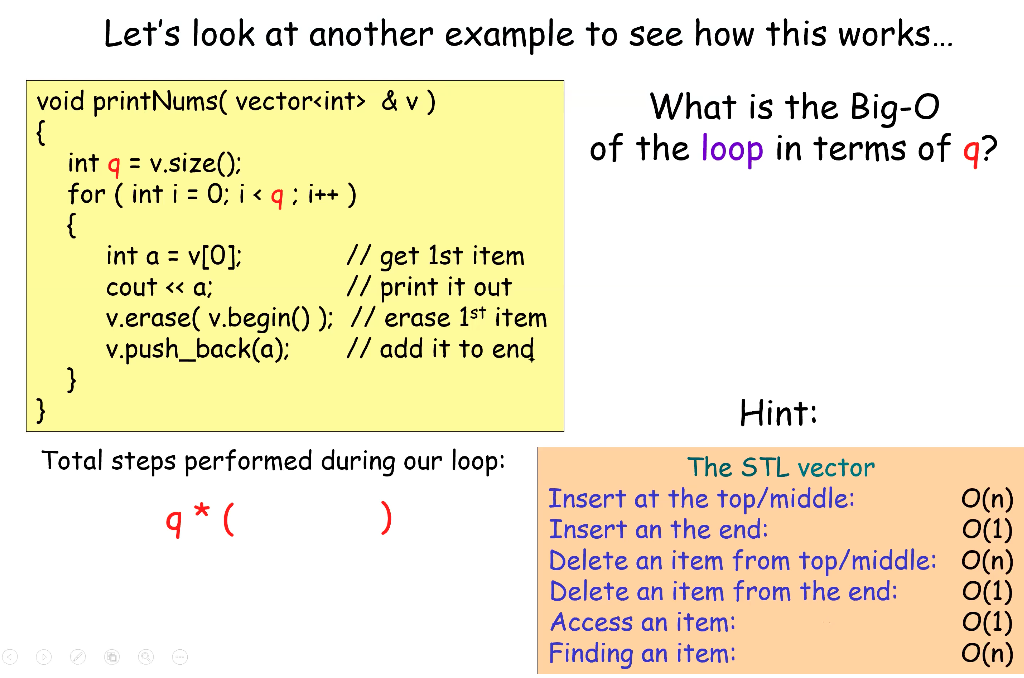
1. Access an item: O(1)
2. Erase the first item: O(q)
3. Push back: O(1)
4. Result: O(q*(1+q+1)) = O(q^2)STL and Big-O Cheat Sheet
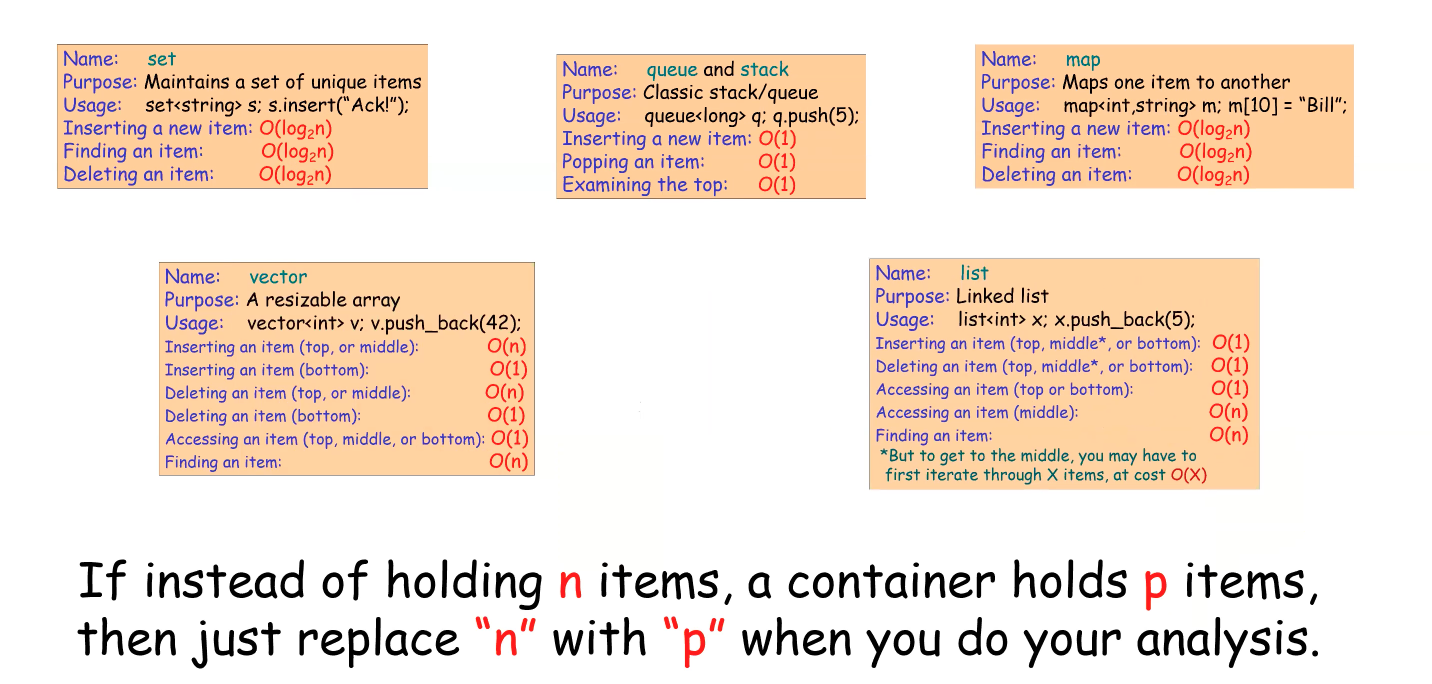
Problem 4

Answer: O(p^2)
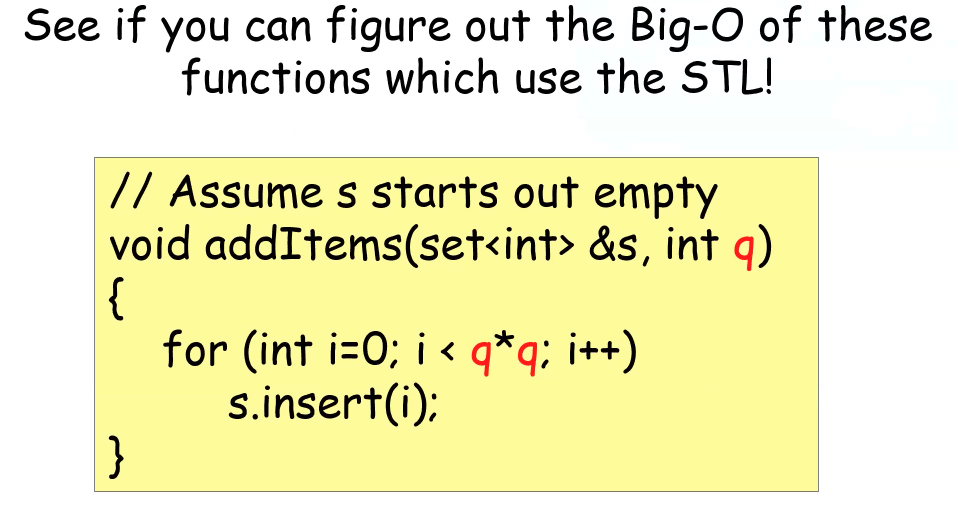
There are q^2 total iterations (items), and the cost of adding a single item to a set with q^2 items is O(log_2(q^2)).
Answer: O(q^2*log_2(q^2))

Answer: O(z)
Problem 5
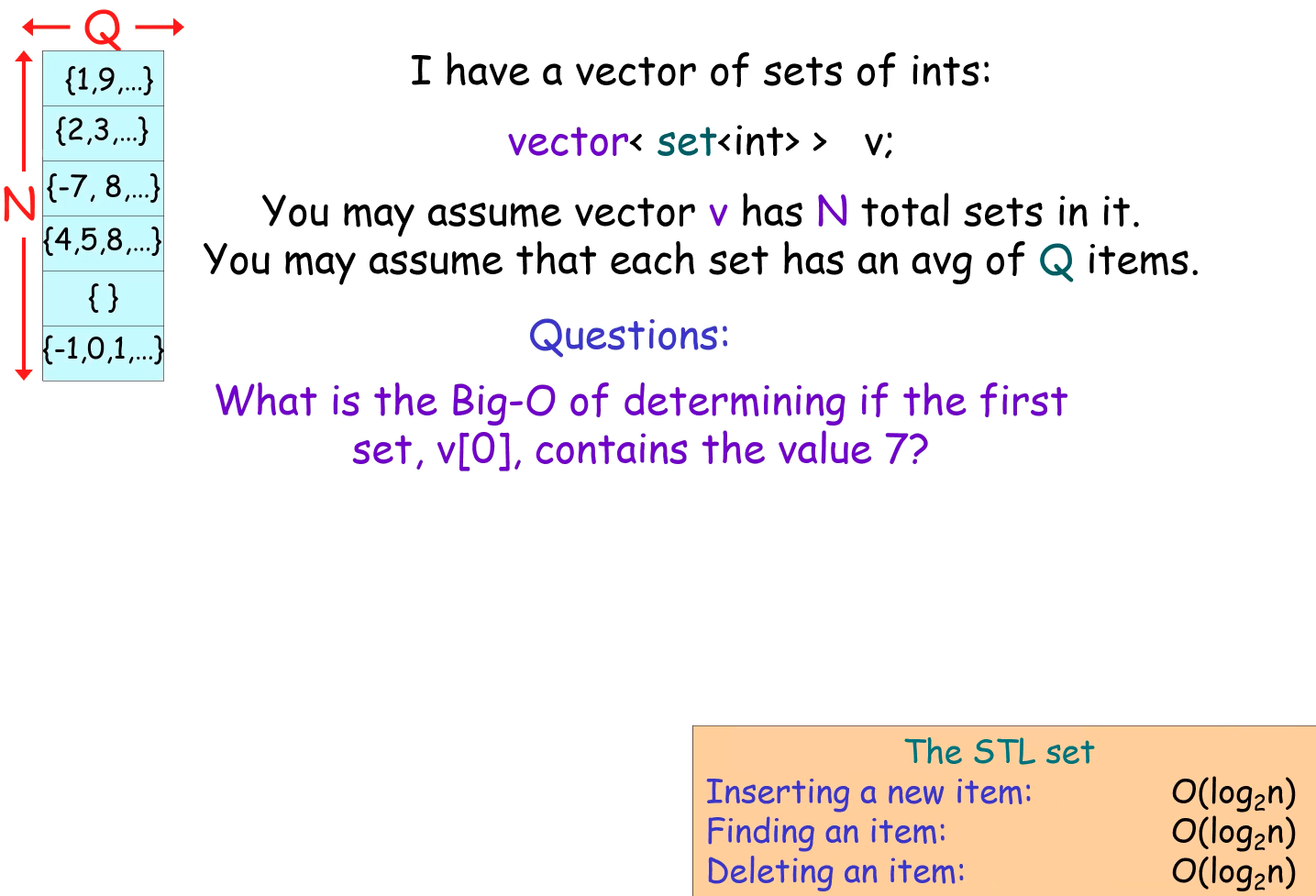
Q. What is the Big-O of determining if the first set, v[0],
contains the value 7?
A. O(log_2(Q))
Q. What is the Big-O of determining if any set in v has
a value of 7?
A. O(N*log_2(Q))
Q. What is the Big-O of determining the number of even values in
all of v?
A. O(N*Q*log_2(Q))
Q. What is the Big-O of finding the first set with a value of 7
and then counting the number of even values in that set?
A. O(N*(log_2(Q)) + Q*log_2(Q))Sort
Selection Sort
void selectionSort(int A[], int n)
{
for (int i=0; i<n; i++) {
int midIndex = i;
for (int j=i+1; j<n; j++) {
if (A[j] < A[minIndex])
minIndex = j;
}
swap(A[i], A[midIndex]);
}
}Selection sort is unstable.
used for easy algorithms, small data sets.
Insertion sort
// ascending order
void insertionSort(int A[], int n)
{
for(int s=2; s<=n; s++) {
int sortMe = A[s-1];
int i = s-2;
while(i>=0 && sortMe < A[i]) {
A[i+1] = A[i];
--i;
}
A[i+1] = sortMe;
}
}Bubble Sort
void bubbleSort(int Arr[], int n)
{
bool atLeastOneSwap;
do
{
atLeastOneSwap = false;
for (int j=0; j<(n-1); j++) {
if (Arr[j] > Arr[j+1]) {
Swap(Arr[j], Arr[j+1]);
atLeastOneSwap = true;
}
}
}
while (atLeastOneSwap == true);
}